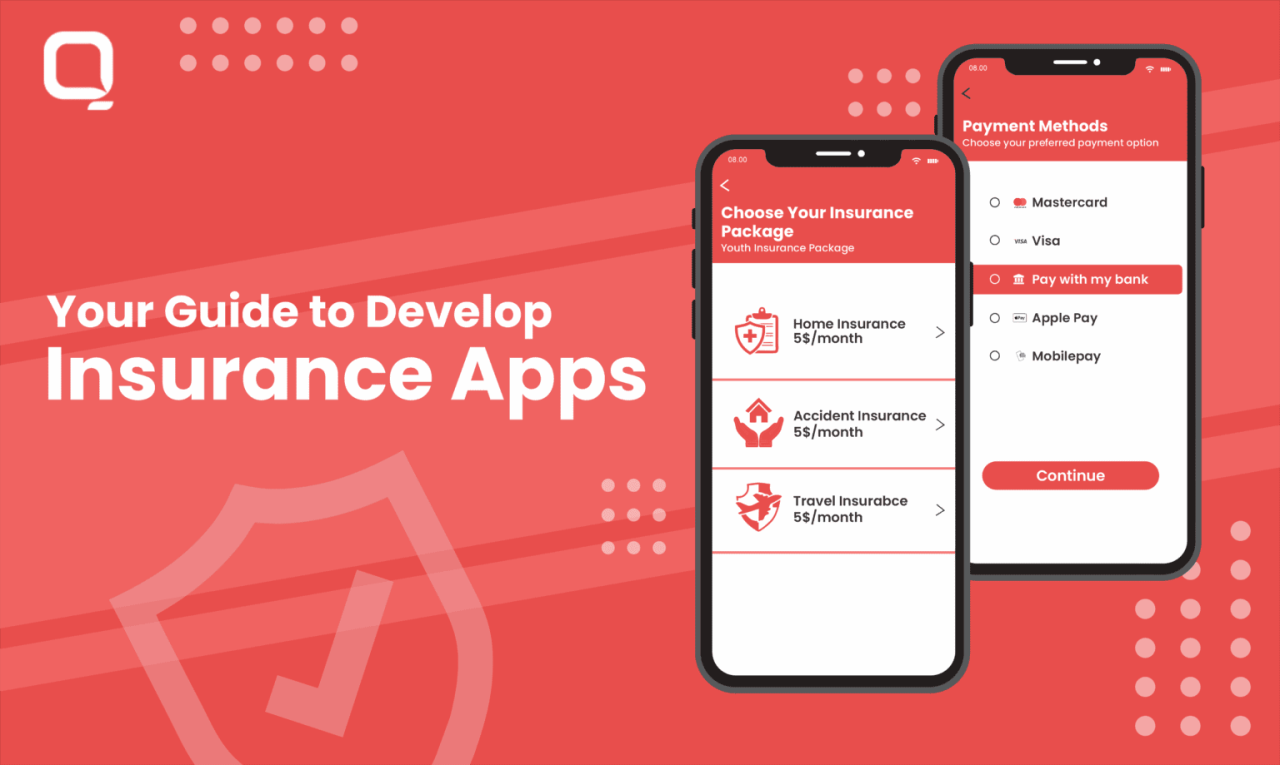Best Insurance Apps for Managing Your Policies sets the stage for a convenient journey through the digital landscape of insurance management. In today’s fast-paced world, having the right tools to oversee your insurance policies can make all the difference. These apps not only streamline the process of tracking and managing your insurance needs but also offer features that enhance your understanding and control over your policies.

From intuitive interfaces to comprehensive coverage tracking, the best insurance apps are designed to meet the diverse needs of users. They provide an easy way to access policy documents, file claims, and even receive timely reminders for payments, ensuring that users never miss a beat when it comes to their insurance obligations.
In today’s rapidly evolving digital landscape, the importance of having a strong online presence cannot be overstated. Businesses, large and small, are recognizing the need to adapt to the new norms of consumer behavior. The rise of social media, e-commerce, and digital marketing has transformed the ways in which businesses engage with their customers. In this article, we will explore the various facets of establishing a robust online presence, the key strategies involved, and the potential benefits for businesses that embrace this shift.The foundation of any successful online presence starts with a well-designed website.
A website serves as the virtual storefront for a business, providing customers with essential information about products and services. It is crucial that the website is user-friendly, visually appealing, and optimized for search engines. This optimization, known as Search Engine Optimization (), involves utilizing relevant s, creating high-quality content, and ensuring that the website is mobile-friendly. With the majority of users accessing websites via mobile devices, a responsive design is no longer optional; it is a necessity.Once a website is established, the next step is to engage with customers through social media platforms.
Social media has become an integral part of everyday life for millions of people worldwide. By leveraging platforms such as Facebook, Instagram, Twitter, and LinkedIn, businesses have the opportunity to connect with their audience in real-time. Social media marketing allows companies to share their brand story, promote their products, and interact with customers directly. It also provides valuable insights into customer preferences and behaviors, enabling businesses to tailor their marketing strategies accordingly.Content marketing is another crucial aspect of building an online presence.
Creating valuable and informative content not only helps establish a brand as an expert in its field but also drives traffic to the website. Blog posts, articles, videos, and infographics are all effective forms of content that can engage potential customers. By providing solutions to common problems or answering frequently asked questions, businesses can build trust and credibility with their audience.
Additionally, quality content can improve rankings, attracting even more visitors to the website.Email marketing remains a powerful tool for nurturing customer relationships. By collecting email addresses through website sign-ups or social media campaigns, businesses can send targeted messages directly to their audience. Newsletters, promotional offers, and personalized recommendations can keep customers informed and engaged. The key to successful email marketing lies in crafting compelling subject lines, personalized content, and clear calls to action.
This direct line of communication allows businesses to stay top-of-mind and drive repeat purchases.Furthermore, online advertising can significantly enhance visibility and reach. Pay-per-click (PPC) advertising, social media ads, and display ads are all viable options for driving targeted traffic to a website. These advertisements can be customized to reach specific demographics, ensuring that marketing efforts are effectively aligned with the intended audience.
The ability to track and analyze the performance of online ads allows businesses to make data-driven decisions and optimize their campaigns for better results.As businesses invest in their online presence, it is crucial to monitor their performance regularly. Analytics tools provide insights into website traffic, user behavior, and conversion rates. By analyzing this data, businesses can identify areas for improvement and adjust their strategies accordingly.
Continuous monitoring and optimization are essential to staying competitive in the fast-paced digital landscape.Another significant aspect of establishing an online presence is reputation management. Online reviews and customer feedback can greatly influence a business’s image. Encouraging satisfied customers to leave positive reviews and addressing any negative feedback promptly can help build a positive online reputation. Engaging with customers and showing that their opinions matter fosters loyalty and trust, which can lead to increased sales and referrals.In conclusion, building a strong online presence is a multifaceted endeavor that requires careful planning and execution.
From creating a user-friendly website and engaging with customers on social media to implementing effective content marketing and email strategies, every aspect plays a vital role in establishing a brand’s identity in the digital world. As businesses navigate this landscape, they must remain adaptable and responsive to changing consumer behaviors and technological advancements. By embracing these strategies, companies can not only enhance their visibility but also cultivate lasting relationships with their customers, ultimately leading to sustained success in the competitive marketplace.



